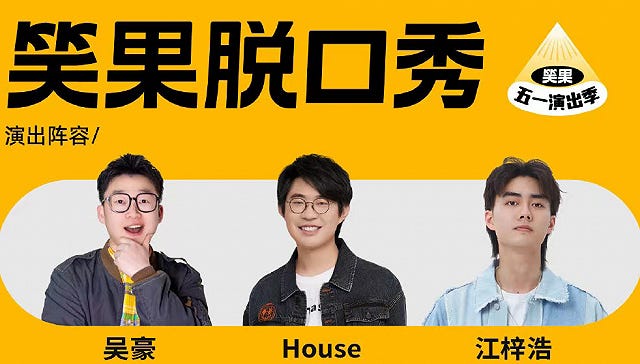View from China with an Austrian School of Economics Perspective
China may not be the Black Mirror-style dystopian nightmare that we often see Western tech enthusiasts pining over, with their concentration camps and beloved social credit system tracking everyone’s every move. But it does have some authoritarian policies, the most prominent of which is its unwritten speech censorship policy. We last wrote about these policies back in October 2022 at the height of the zero-Covid policy. It’s time for an update.
To be clear, we are talking here about restrictions on what people say and write, not about China’s policy of blocking Western platforms such as Google or Facebook, or government-aligned sites such as the BBC or the NY Times. Since the platform blockages are not difficult to circumvent, their primary purpose seems to be to prevent China’s Internet from depending on them. That is however a different topic.
The restrictions on speech (in Chinese: 内容监管 / 舆论管控 / 舆情控制) apply to statements posted online and especially to anything said at public events. To cite a few examples, in its current form the policy bans people from saying negative things about the economy or the stock market. It also apparently bans criticism of the party, the army and incredibly, even bans mentioning the president, explicitly or by inference. However, none of these restrictions have ever been published. In October 2022 we described this as a “zero-speech” policy, when precisely that was the case with regard to Beijing’s erstwhile zero-Covid policy. In today’s context, calling it a “zero-speech” policy would be an exaggeration, since most speech — including criticism of the status quo — is permitted. The problem is that it’s not always clear what is permitted and what isn’t. This uncertainty is in itself a big problem.
For casual critics sharing opinions online, the consequences of violating the above restrictions are rarely serious – usually just a deleted post, a view-restricted video, or in the case of independent media platforms a call from the censor demanding that something be removed. If repeated often, your account might be suspended for a week or two, or in extreme cases banned. On China’s top blogging platform Weibo bloggers are even held responsible for the content of comments. In other words, if you lack the time to actively police your comments, you had best close them completely.
By contrast, for professional journalists, comedians, and other public figures, the consequences can be much more serious. They face the danger of cancellation – i.e. a complete ban from domestic social media, significant fines and for particularly persistent repeat offenders, though it’s rare, imprisonment.
For example, in May 2023 the hugely successful Shanghai-based comedy studio Xiaoguo Culture (笑果文化) was fined a total of 14.7 million yuan (approximately US$2.1 million at the time) for a joke made by its star stand-up comic Li Haoshi aka House. The joke was interpreted as mocking the army, and thanks to the fine, almost everyone in China got to hear it.
These days Western dissidents also face growing risks of censorship, fines, cancellation and even imprisonment; however, for material published in Chinese, the Western Internet remains a safe haven. The unsurprising result is that some of China’s leading journalists, intellectuals and businessmen have chosen to relocate abroad. This is by any measure a loss for China, even if they continue to create material while there.
While the current censorship policy is absurd and clearly authoritarian, the reality is that it is not particularly totalitarian, in the sense that it isn’t very effective and doesn’t significantly impact most people’s lives. In particular, it doesn’t prevent information from circulating. Moreover, the restrictions don’t prevent people from publicly raising their voice about issues they see in the society around them, whether directly via the government’s 12345 hotline, or indirectly via social media. If complaints gain enough traction, government authorities still tend to react to them by attempting to resolve the issues. In fact, it’s fair to say that the Chinese government is significantly more responsive to citizen complaints than most of its Western counterparts.
Sure, the restrictions are annoying. They also represent a serious step backwards (倒退) for society and the rule of law. But do they accomplish anything other than crippling the development of independent media and driving serious journalists abroad? Content which people want to communicate gets shared anyway, using code words, by sending material to others as private messages, or by using foreign platforms such as YouTube.
Just to cite one example, during the 2022 Shanghai lockdown, one protest video was shared an estimated 400 million times before it was finally banned from private messages. And it was only one of countless others which achieved mass distribution during the Covid years.
Though its impact on individual journalists and public figures is huge, in terms of the society as a whole, the most significant impact of this cat and mouse game is not to prevent the public from obtaining information. Rather it:
makes the government look weak in the 40+ age segment of people paying attention,
impedes market research,
inhibits economic development and
severely impacts the government’s own ability to find out what’s going on.
There’s some karma at work there.
It’s hard to imagine how this policy can possibly be maintained long term.




Thank you 🙏, clear and interesting. I was longing for someone saying what really happens in China.
Not the western propaganda.
It annoys me a lot that even people who believe that the Western media are pressitutes... when the very same media tell something horrible about China, they believe it.
Cognitive dissonance at its best.
You've mentioned it's unlikely that this policy can be maintained long-term, a point I agree with. However what are the main reasons for it to exist in the first place? It clearly takes significant resources to maintain and is harmful to the government, society and ordinary people.